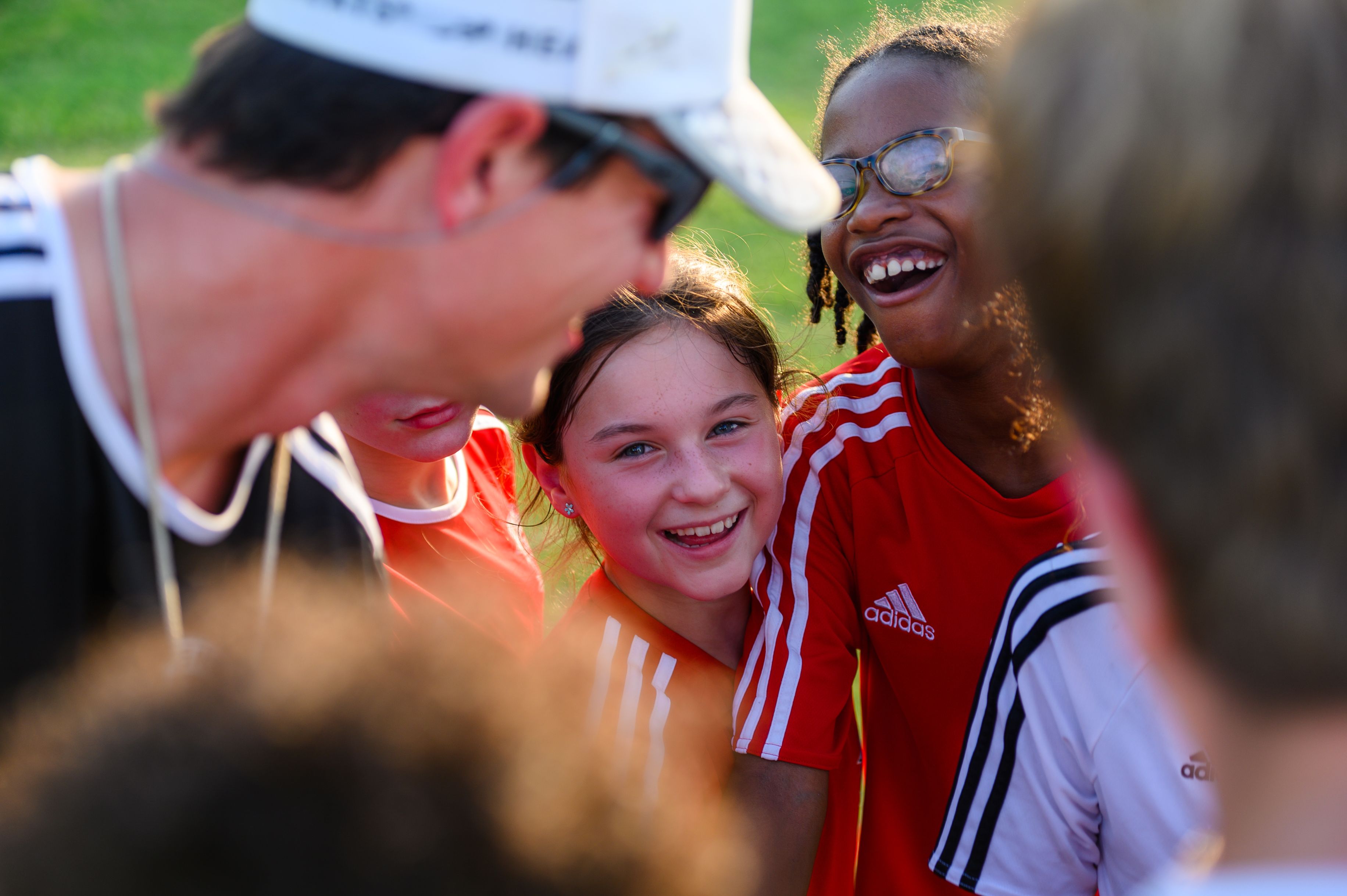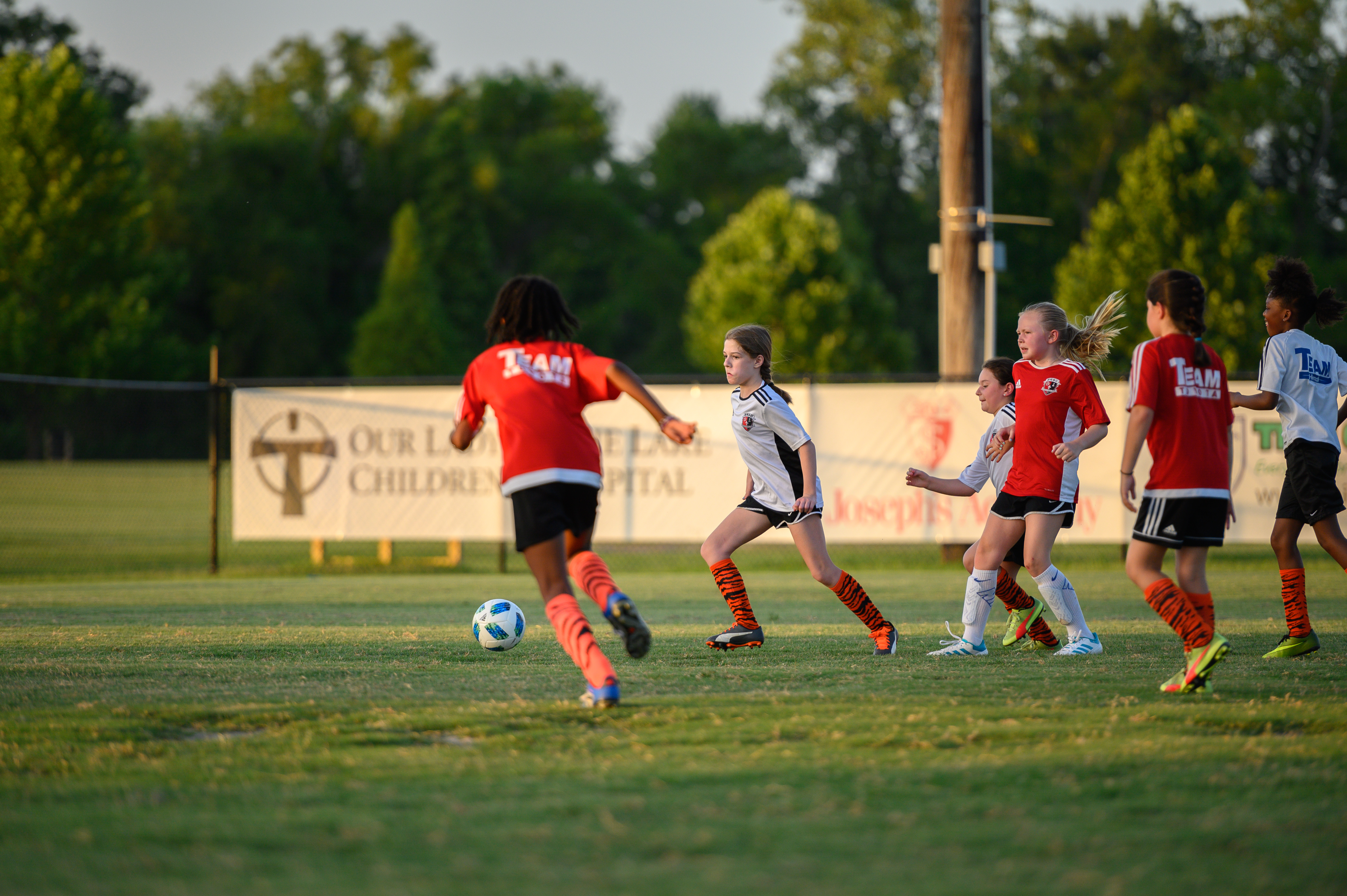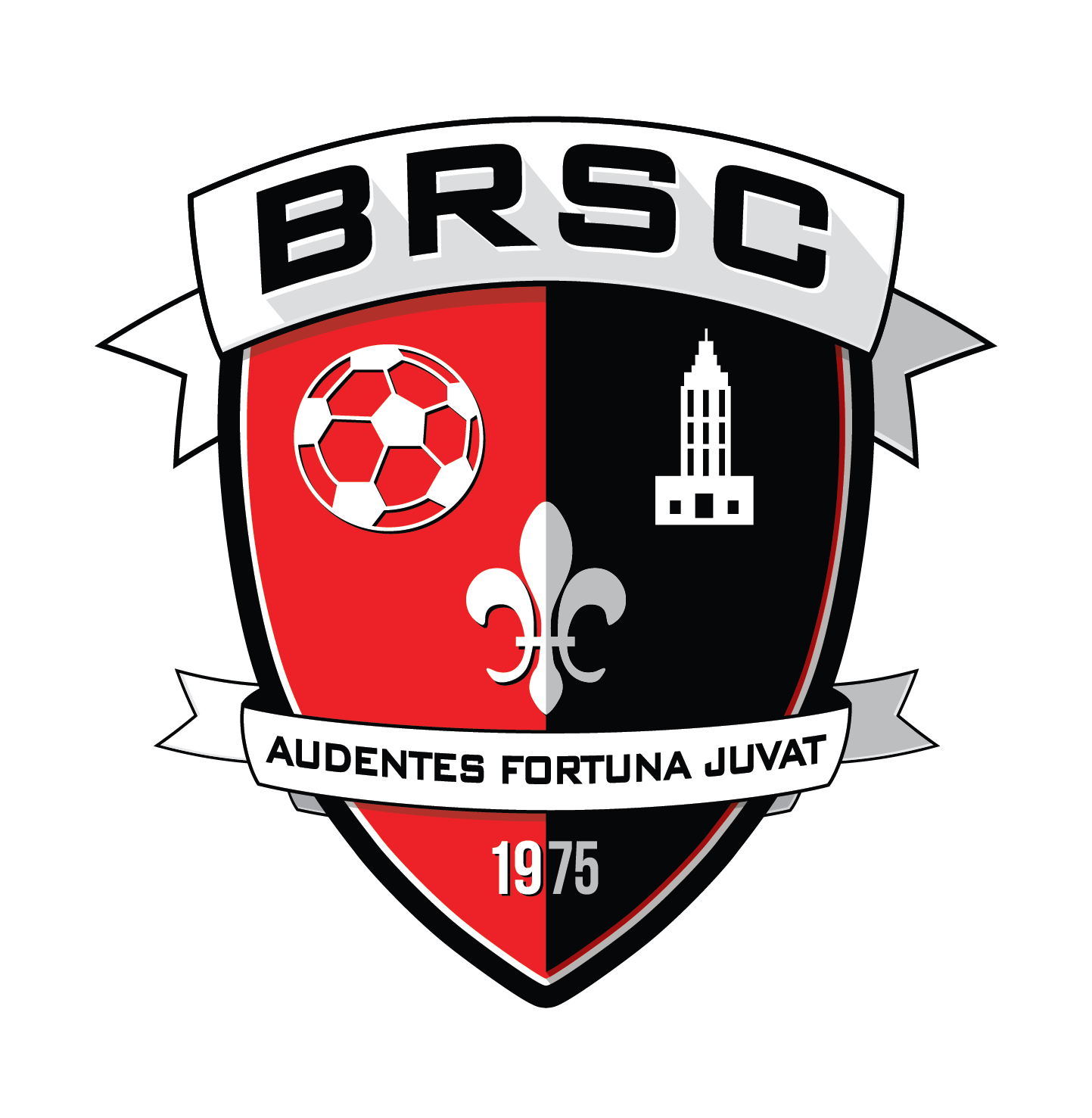COACHING EDUCATION
A primary focus for the coach at the youth level is to provide an environment that comes close to simulating the “pickup” games of our youth. In this setting, much of the creativity and personality of kids developed naturally, without the involvement of adults. Kids need to be allowed to play freely, develop their skills, and creatively use them. Coaches should organize only so far as it helps to create this environment.
As the coach, you should encourage comfort with the ball and the confidence to use this skill creatively. Encourage the dribbler at the younger ages. Dribbling, at the younger ages, is the child’s attempt to gain control over the ball. Controlling the ball is the primary skill that every other ability in soccer depends on. Although managing the ball may seem to be a simple task, it takes an enormous amount of the child’s energy. Do not expect players to pass with any level of competence or awareness until he or she has first mastered this skill.

Consider these two points. Children from about age 6 to 12 have an almost limitless capacity to learn body movement and coordination (i.e., motor skills). At the same time, their intellectual ability to understand spatial concepts like positions and group play is limited. Work to their strengths.
TRAINING TIPS
Keep it Fun! Kids love playing games and keeping score.
- Select and play activities that are more game like.
- Limit activities that incorporate lines. Everyone should stay active and participate.
- Maximize “touches” on the ball. There should be at least 100 touches per practice for each player.
- Teach proper technique and emphasize games that practice technique or simulate play or playing situations.
- Play games by keeping time (i.e., so they last 1,3, or 5 minutes) or by keeping score (i.e., first to 3, 12, etc. wins).
- Praise effort, improvement, and the right attitude. Measure each player’s performance by his/her growth and energy, and not by comparing them to someone else. Try to motivate in a positive way that builds self-esteem.

BRSC Director of Coaching addresses Recreational Coaches on the BRSC's philosophy to coaching and player development.
Developing Players

First, help your weaker players to develop their confidence with the ball. At the same time, continue to challenge your stronger players to expand their creativity and confidence. Confidence is the key. The more time players spend during practice and games with the ball at their feet, the more comfortable they will become, the more confident they will become, the more players will look to get involved, and the more fun they will have with soccer.
Work during practice to move all your players forward at their own pace. Do not be concerned with match results. Be concerned that all your players want the ball at their feet, and they want to score. If you can accomplish this, you have successfully allowed your group to grow as soccer players.

